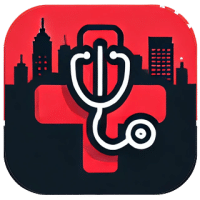Finding free STNA (State Tested Nursing Assistant) classes in the Columbus area can be a game-changer for those looking to enter the healthcare field without the burden of tuition costs.
This page outlines a variety of STNA training options, including programs offered by non-profit organizations that provide need-based assistance, as well as opportunities where training is free as part of an employment agreement.
Whether you’re seeking no-cost training from charitable organizations or willing to commit to working for an employer in exchange for paid training, this list will guide you toward the best path for your future.
Goodwill Columbus STNA Program
Goodwill Columbus offers a free State Tested Nursing Assistant (STNA) program, allowing students to complete their training without tuition costs, making it an affordable alternative to traditional STNA schools. This program removes financial barriers, providing accessible healthcare education to those who may not otherwise afford it.
The classes are held in-person at The Reeb Avenue Center on the south side of Columbus, offering hands-on training in a real-world setting. The course is designed to be completed in five weeks, making it a relatively quick path to entering the healthcare field. Students learn essential skills to prepare for the certification exam and begin their careers as nursing assistants.
By covering the full cost of tuition, Goodwill Columbus ensures that participants can focus on their education without financial stress. This no-cost program is an excellent opportunity for individuals seeking to gain an industry-recognized credential and secure employment in healthcare.
| Program Information | Details |
|---|---|
| Cost | Free |
| Program Duration | 5 weeks |
| Class Schedules | In-person |
| Website | Goodwill Columbus STNA Program |
| Location | The Reeb Avenue Center, Columbus, OH |
| Phone | (614) 966-9283 |
| Online Classes | No |
Affordable Online Learning Options
Online CNA programs offer significant flexibility and convenience, allowing students to complete theoretical coursework at their own pace and schedule while balancing other life commitments like work or family responsibilities. These programs typically cost less than traditional in-person courses, eliminating expenses related to commuting and physical materials, while still providing comprehensive educational content through interactive learning modules, virtual simulations, and video demonstrations. Though hands-on clinical practice must still be completed in person at approved healthcare facilities, online programs often help students secure these placements and coordinate schedules.
Many online CNA programs also offer additional benefits such as 24/7 access to course materials, one-on-one virtual tutoring, practice exams to prepare for certification, and the ability to review challenging concepts multiple times – features that can enhance learning retention and boost confidence before entering the healthcare field. Learn more about pricing and course details for online healthcare programs below.
Free vs. Paid Online Programs
While free local CNA training programs (often offered through healthcare facilities) and paid online programs each have their merits, free local programs come with several notable drawbacks. These programs typically have very limited enrollment slots and highly competitive admission processes, often with long waitlists that can delay your career plans significantly.
Since they’re usually sponsored by specific healthcare facilities, students are generally required to work for the sponsoring facility for a set period after certification, which limits job flexibility and potential earning power. The rigid, predetermined class schedules of local programs can make it difficult to maintain current employment or handle family responsibilities, unlike self-paced online options.
Free programs also may offer fewer supplementary resources like exam prep materials, one-on-one tutoring, or career placement services that are commonly included in paid online programs. The quality of instruction can also vary widely in free programs since they’re often taught by facility staff rather than dedicated CNA educators, and the curriculum may focus primarily on skills needed at that specific facility rather than providing comprehensive training for diverse healthcare settings.
